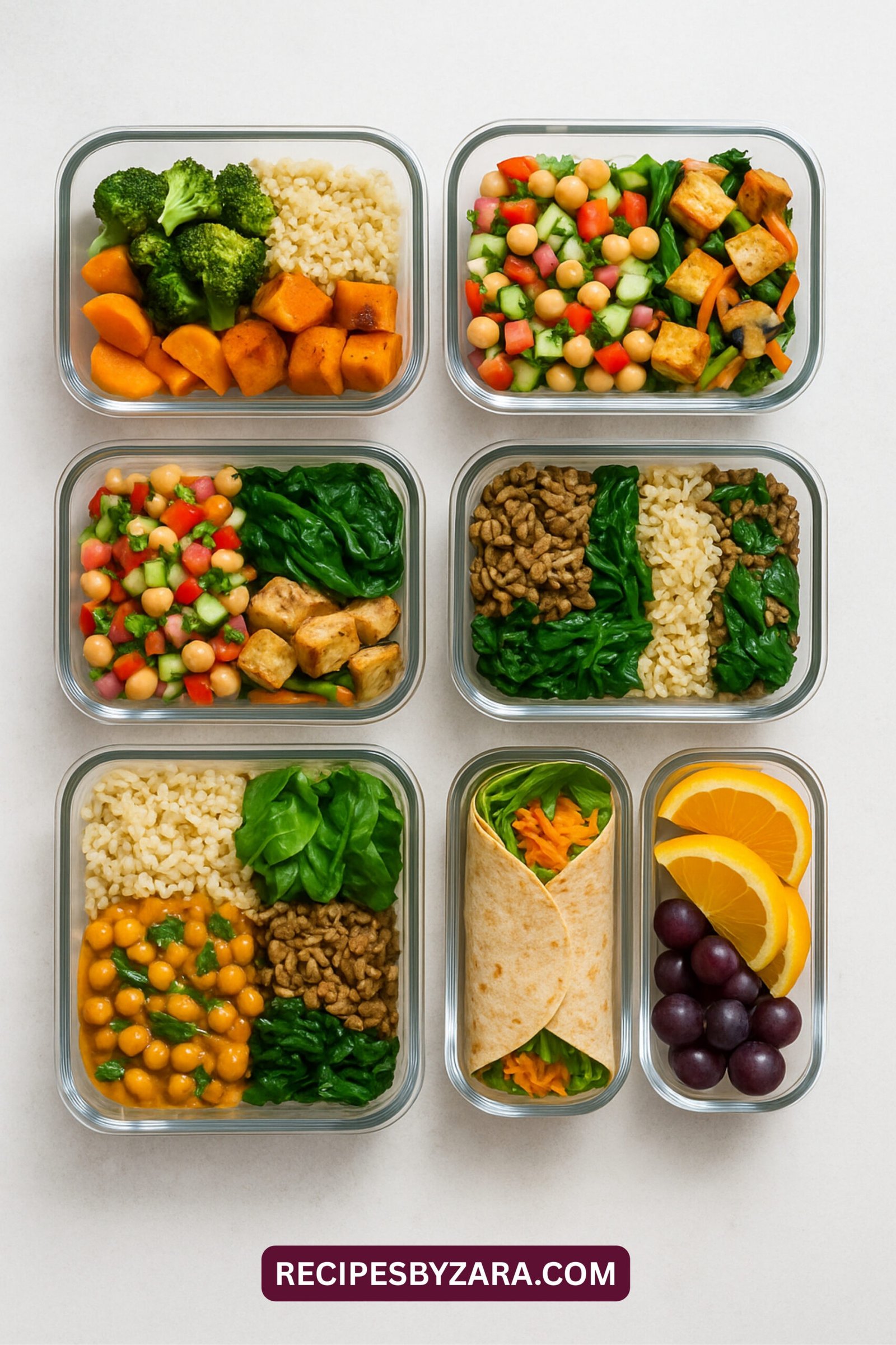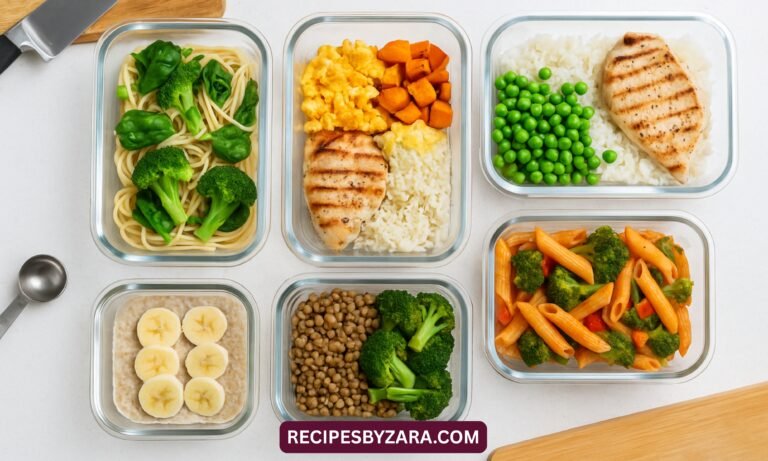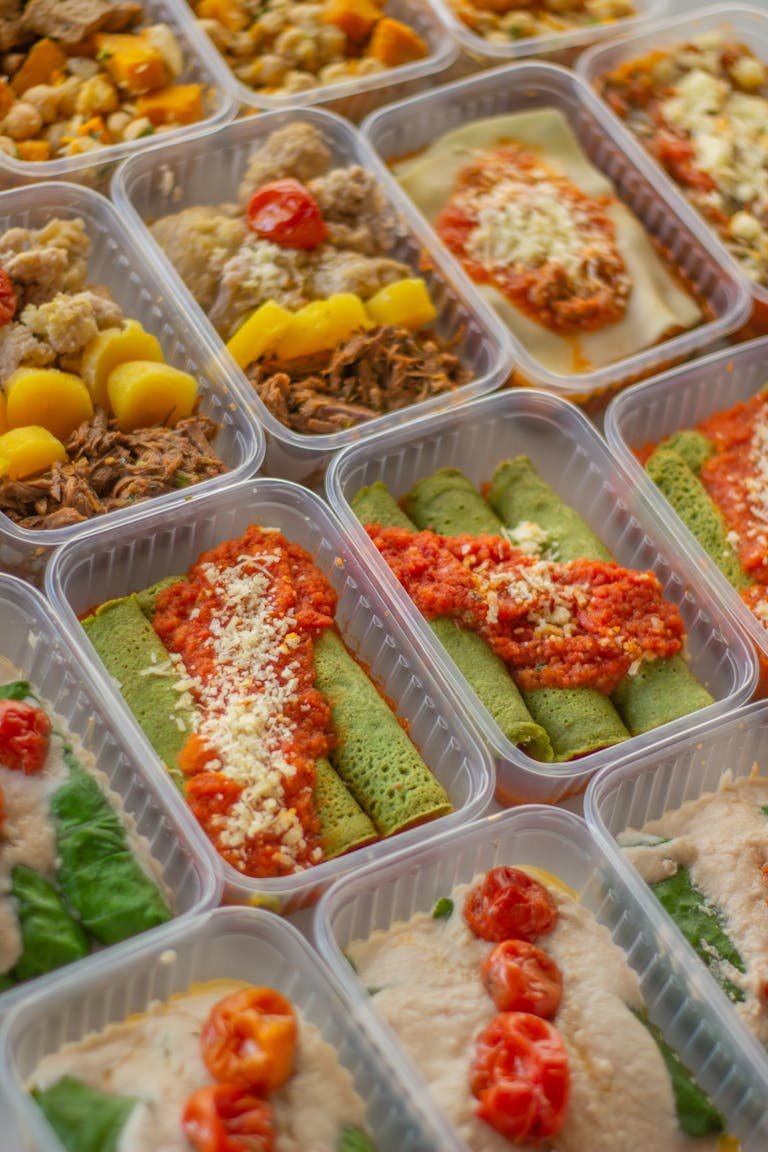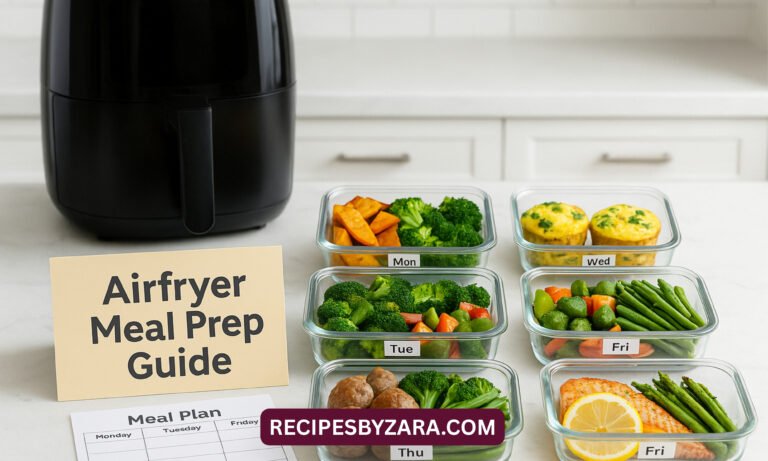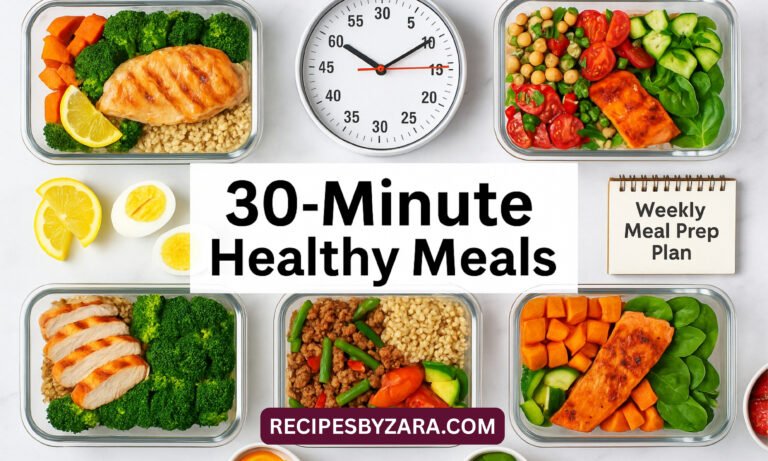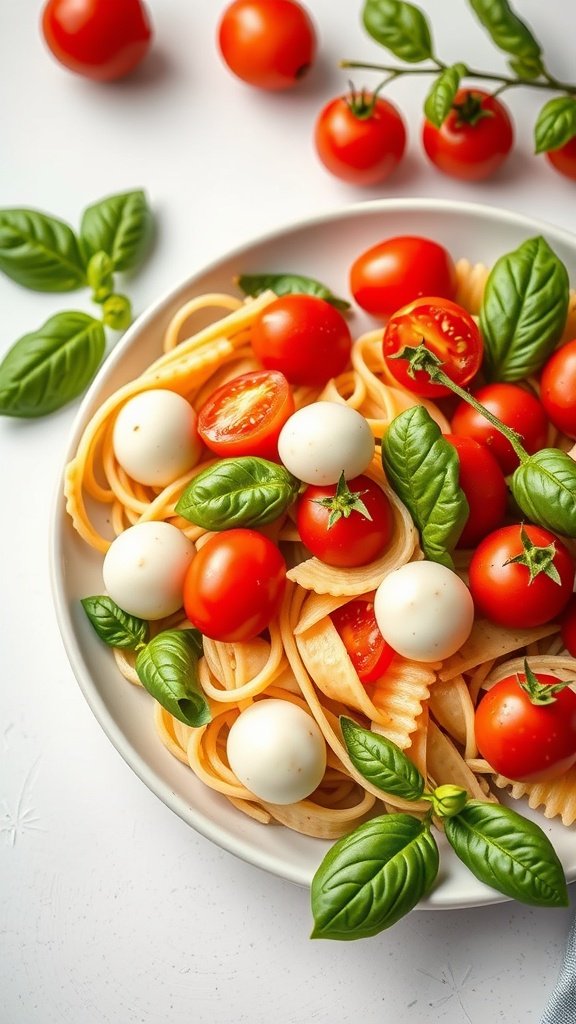Plant Based Meal Prep
Master the art of plant based meal prep with this complete guide. Learn how to save time, eat clean, and stick to your health goals with simple, delicious plant-based meals for the week.
Eating a plant-based diet doesn’t have to be time-consuming or complicated. With effective plant based meal prep, you can plan, cook, and store healthy meals in advance that support your lifestyle, save money, and reduce daily stress around food. Whether you’re cooking for yourself, your family, or a group, prepping in advance brings structure and convenience.
Plant based meal prep allows you to stick to your dietary goals while managing a busy schedule. You’ll spend less time in the kitchen during the week and more time doing what you love. From breakfast to dinner and even snacks, prepping meals ahead ensures you always have something nourishing and delicious ready to eat.
This guide will walk you through everything you need to know from meal planning to choosing ingredients, using the right containers, and creating your own 7-day prep routine. You’ll also find plenty of tips to keep things budget-friendly and tasty.
1. What Is Plant Based Meal Prep?
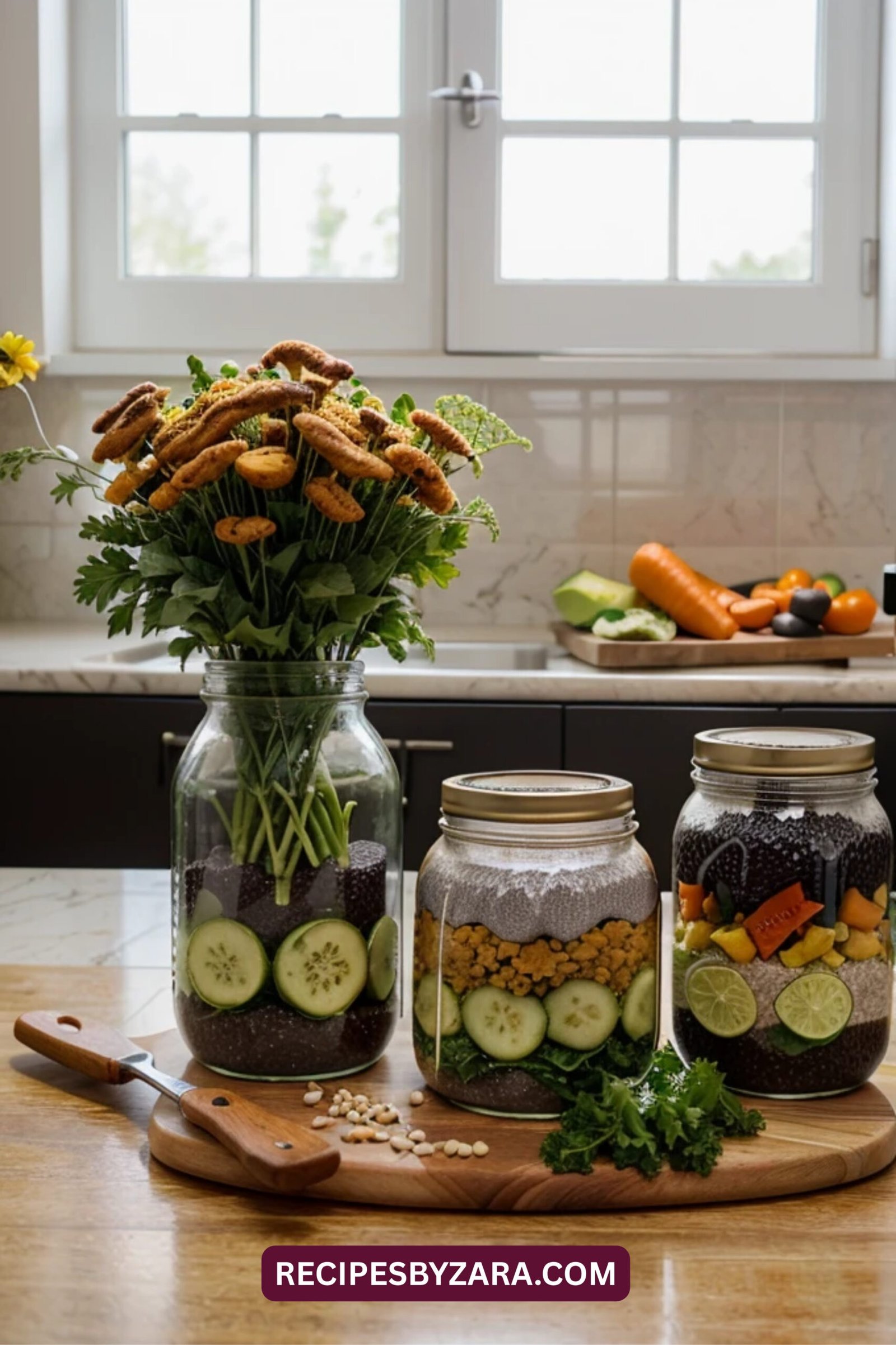
Plant based meal prep is the process of preparing meals ahead of time using only plant-derived ingredients such as vegetables, fruits, grains, legumes, nuts, and seeds. It doesn’t have to be fully vegan, but it focuses heavily on whole foods and limits animal products. This style of eating supports your health while also being environmentally friendly.
Meal prepping makes it easier to maintain a clean eating routine without daily cooking. It saves time by allowing you to batch cook, portion meals, and store them for use throughout the week. It is especially helpful for people who work full-time, have families, or simply want to simplify their eating habits.
Unlike standard meal prep that may include dairy or meat, plant based meal prep focuses on variety and nutrition from plant sources. It incorporates ingredients that support plant-powered nutrition and encourage healthy digestion, improved energy levels, and better skin.
By planning your meals around plant-based staples, you create a sustainable food routine that benefits your health, your wallet, and the planet. You also avoid last-minute fast food decisions and can stay consistent with your fitness or weight goals.
2. Benefits of Plant Based Meal Prep
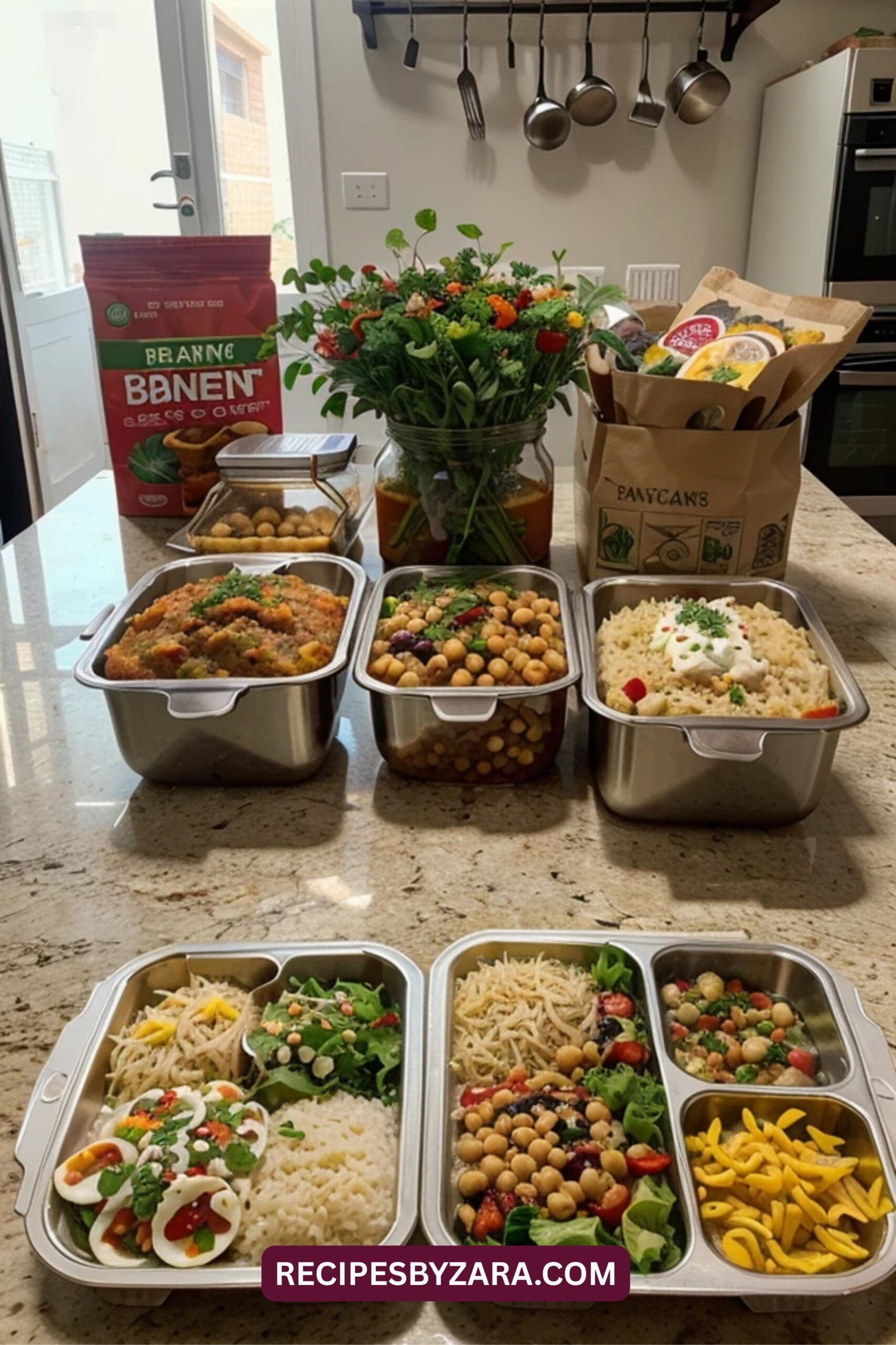
One of the biggest advantages of plant based meal prep is how much time it saves. Prepping all your meals in one or two sessions means no more wondering what to eat each day. It reduces time spent in the kitchen during the week and helps keep your routine organized.
It also supports weight management and clean eating. Since you prepare your meals in advance, you’re less likely to grab unhealthy options on the go. You control what goes into each dish, helping you stick to low calorie plant prep and avoid processed ingredients.
Another benefit is the cost savings. With budget plant-based meals, you can make affordable dishes using bulk ingredients like lentils, oats, and rice. Prepping at home also means fewer trips to the grocery store and reduced food waste.
Finally, meal prepping enhances your nutrition. You can build meals that are high in fiber, plant-based protein, and micronutrients. Whether you follow a gluten-free, soy-free, or dairy-free weekly menu, plant-based prepping makes eating healthy more accessible.
3. Building a Balanced Plant Based Meal Plan
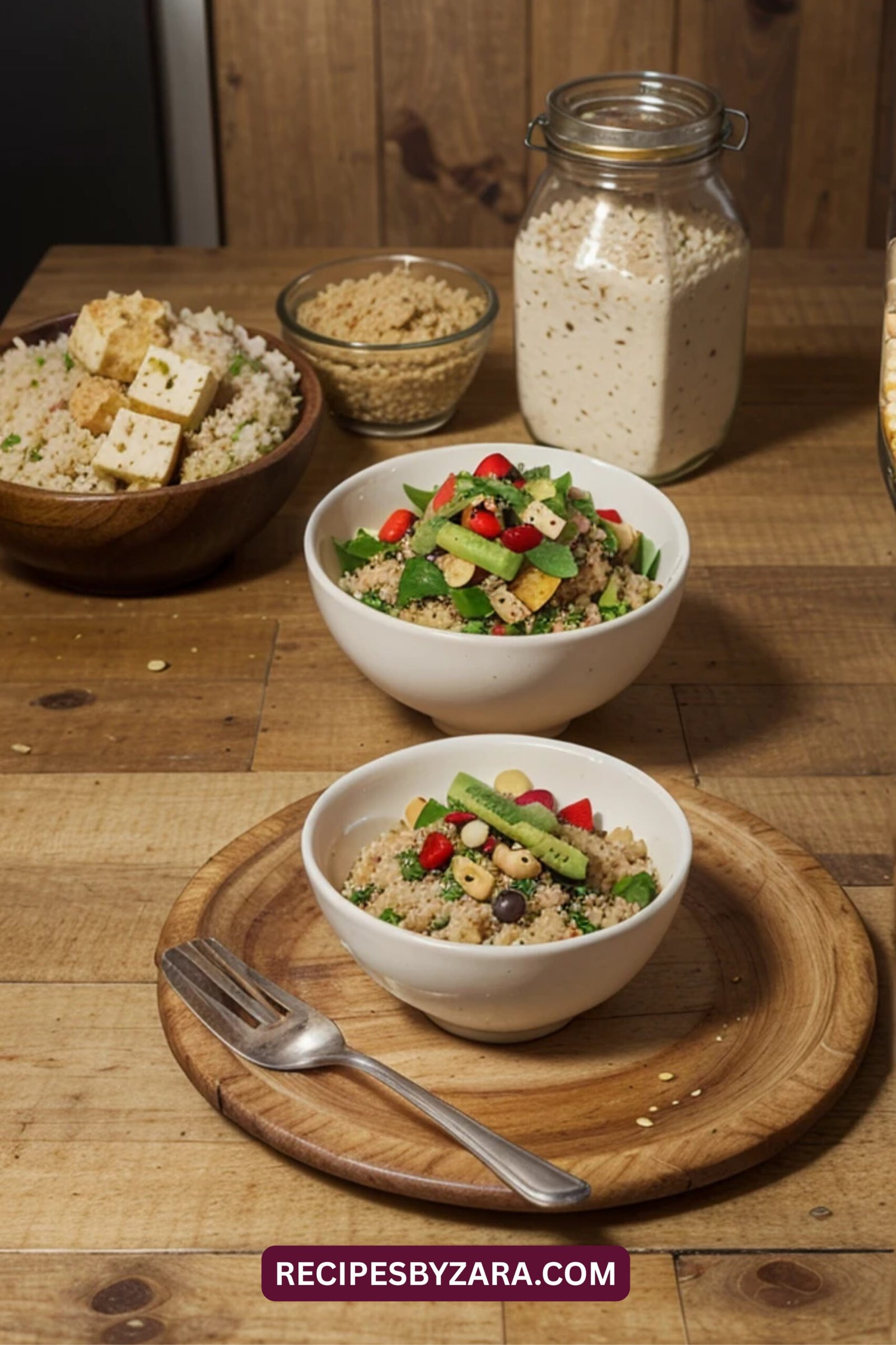
Creating a well-rounded plant based meal prep plan starts with understanding plant-based nutrition. You need to include macronutrients like complex carbohydrates, healthy fats, and protein-rich foods in every meal. Examples include oats, avocados, and beans.
Including complete proteins is key. Combine grains and legumes like brown rice with black beans, or whole grain bread with peanut butter to get all essential amino acids. You can also use quinoa and tofu as plant based protein options.
A good meal plan includes variety to avoid flavor fatigue. Rotate grains, vegetables, and cooking methods (baking, roasting, steaming) throughout the week. This ensures you consume anti-inflammatory recipes and prevent boredom with food.
Use an example weekly meal structure like this: oatmeal for breakfast, chickpea salad for lunch, lentil soup for dinner, and energy bites or fruit for snacks. A balanced plan covers all your dietary needs while keeping things easy to manage.
4. Best Ingredients for Plant Based Meal Prep
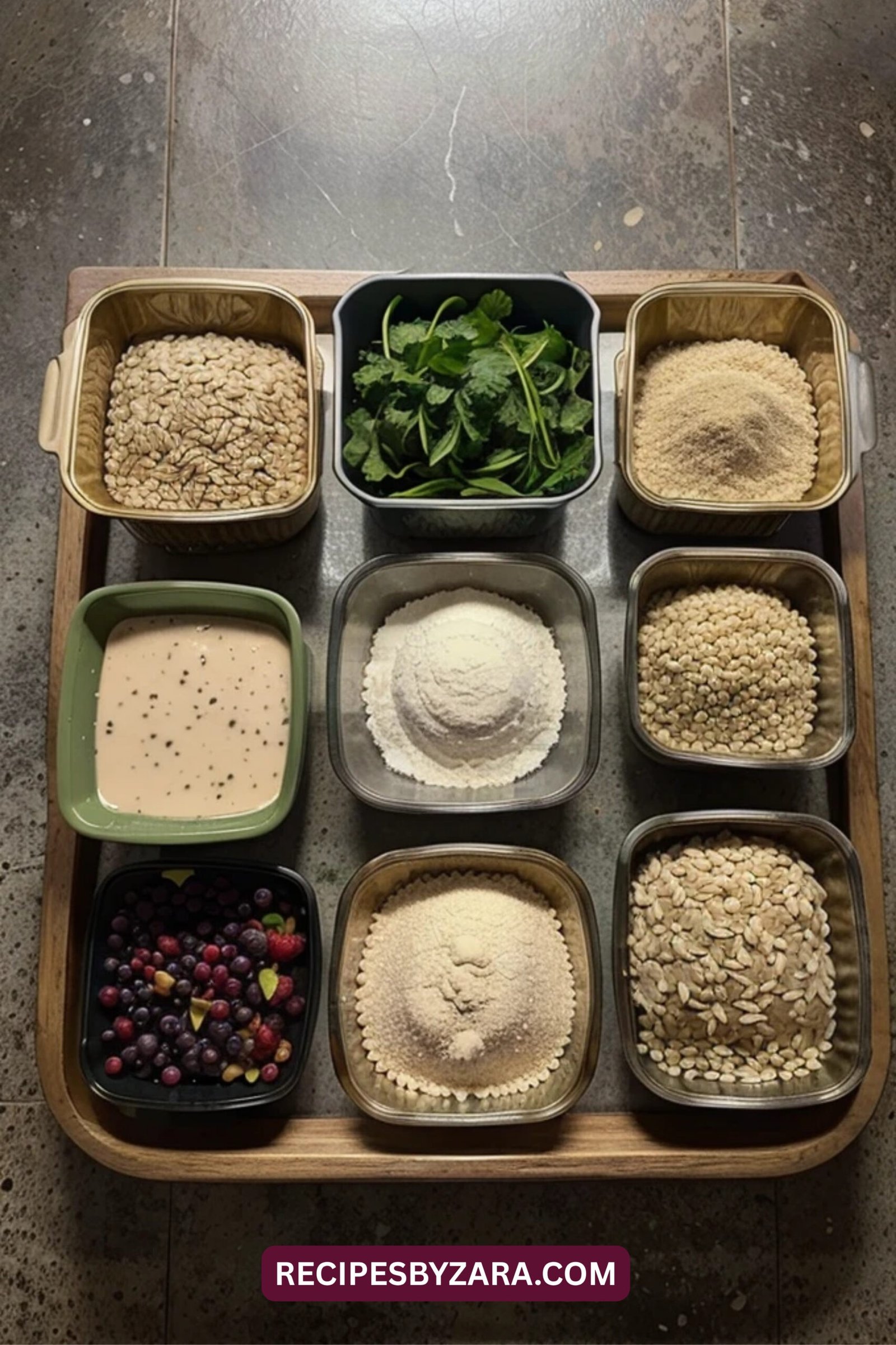
Certain ingredients work better than others when it comes to plant based meal prep. Start with whole grains like quinoa, brown rice, and oats. These are filling, store well, and are easy to pair with any protein or vegetable.
Legumes such as lentils, chickpeas, and black beans are essential. They’re affordable, protein-packed, and form the base for countless meals like soups, stews, and salads. They also make great chickpea meal ideas and lentil-based dinners.
Stock up on nutrient-rich vegetables like spinach, kale, sweet potatoes, and bell peppers. These can be roasted in bulk or used raw. Add fruits like berries and apples for snacks and smoothie packs.
Other must-haves include plant-based milks, hummus, tofu, nuts, seeds, and flavor boosters like garlic, lemon, and herbs. These staples help you build whole food meal prep meals without boredom or burnout.
5. Easy Plant Based Meal Prep Recipes
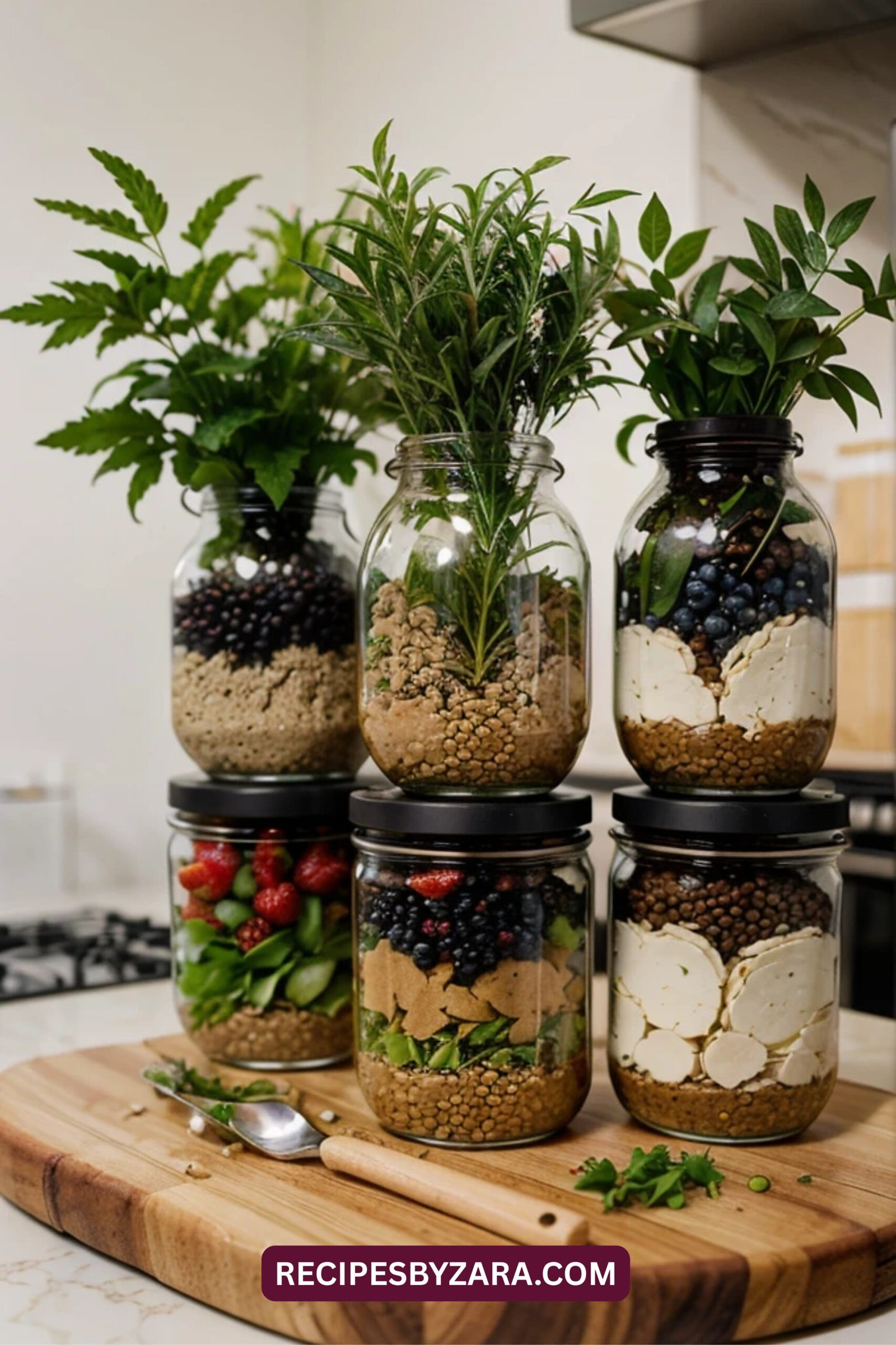
Simplify your cooking with one pot plant-based meals like vegetable curry, chili, or lentil stew. These are hearty, filling, and perfect for large batch cooking. You can portion them easily into prep ahead plant dishes for the week.
For breakfast, prep overnight oats, smoothie packs, or chia pudding. These make-ahead breakfasts are ready to grab in the morning, saving you time and energy.
Lunchtime favorites include wraps, grain bowls, and salads with roasted vegetables and hummus. These can be stored in mason jar meals or plant prep tools like stackable containers.
Snacks like homemade granola bars, roasted chickpeas, or energy bites made from dates and nuts help you stay full between meals. They’re easy to pack and store, ideal for grab and go vegan food options.
6. Tools and Containers for Effective Meal Prep
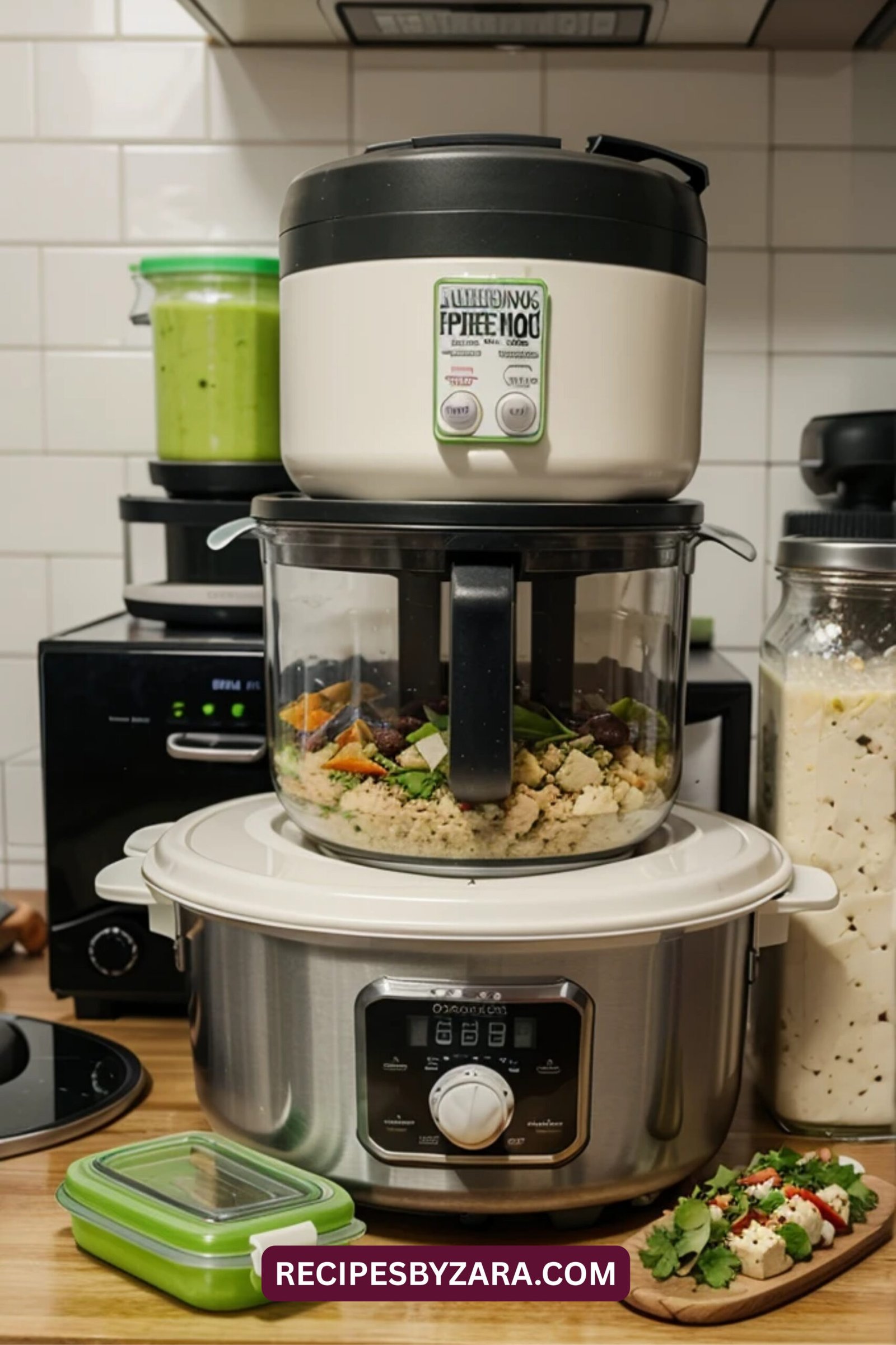
Using the right tools can take your plant based meal prep to the next level. A high-speed blender, food processor, and rice cooker are great for efficiency. These tools make prep faster and allow you to work with a wide variety of plant ingredients.
Storage is equally important. Use BPA-free glass or plastic containers that are microwave-safe. Divide meals into single portions using meal prep containers so they’re ready to grab from the fridge or freezer.
Label your meals with contents and dates using stickers or erasable markers. Follow a plant based food rotation system so you eat meals in the right order and avoid waste.
Fridge and freezer organization matters too. Keep grains, proteins, and vegetables in separate bins or sections to streamline reheating and assembly. Use reusable silicone bags or jars for snacks and dry goods.
7. Mistakes to Avoid in Plant Based Meal Prep

Many beginners forget to include enough protein in their plant based meal ideas. Always make sure you’re including protein-rich ingredients like tofu, tempeh, or beans in each meal. Also consider vegan batch meals using lentils and legumes.
Skipping on flavor is another mistake. Use spices, sauces, and dressings to elevate your meals. Add lemon juice, tahini, or nutritional yeast to boost flavor and texture.
Overcomplicating your plan can lead to burnout. Stick with 4 to 6 simple recipes that share ingredients to save time and reduce stress. Keep your minimalist meal prep realistic and repeatable.
Avoid skipping prep altogether. Consistency is key. Block out time weekly to prep your meals, even if it’s just chopping vegetables or cooking a few grains. Start small and build your routine over time.
8. Sample 7-Day Plant Based Meal Prep Plan
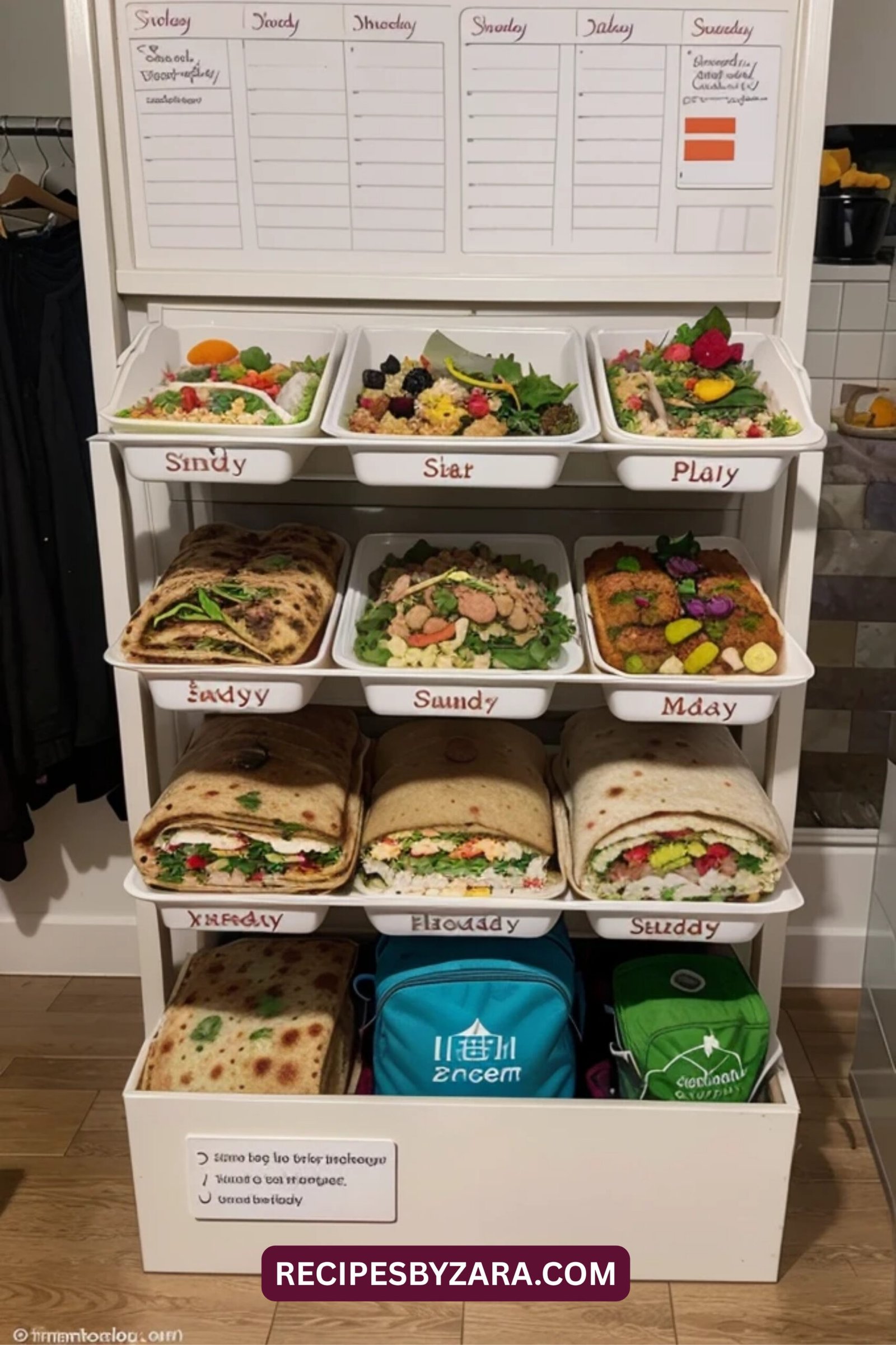
Here’s a sample plan:
- Sunday: Prep quinoa, lentils, sweet potatoes, chopped veggies, and overnight oats.
- Monday: Lentil soup, quinoa salad, and a banana smoothie.
- Tuesday: Chickpea curry with rice and veggie sticks.
- Wednesday: Hummus wraps with roasted veggies and oatmeal muffins.
- Thursday: Pasta with tomato-spinach sauce and cucumber salad.
- Friday: Tofu stir fry and peanut butter energy bites.
- Saturday: Leftover night with freezer meals and fruit.
This plan includes prep for a busy lifestyle and works for vegan family meals too. It’s easy to adjust based on preference, allergies, or goals.
Create a simple meal prep calendar or template. Use it weekly to plan your grocery shopping and ensure you use up fresh ingredients before they expire.
9. Plant Based Prep on a Budget
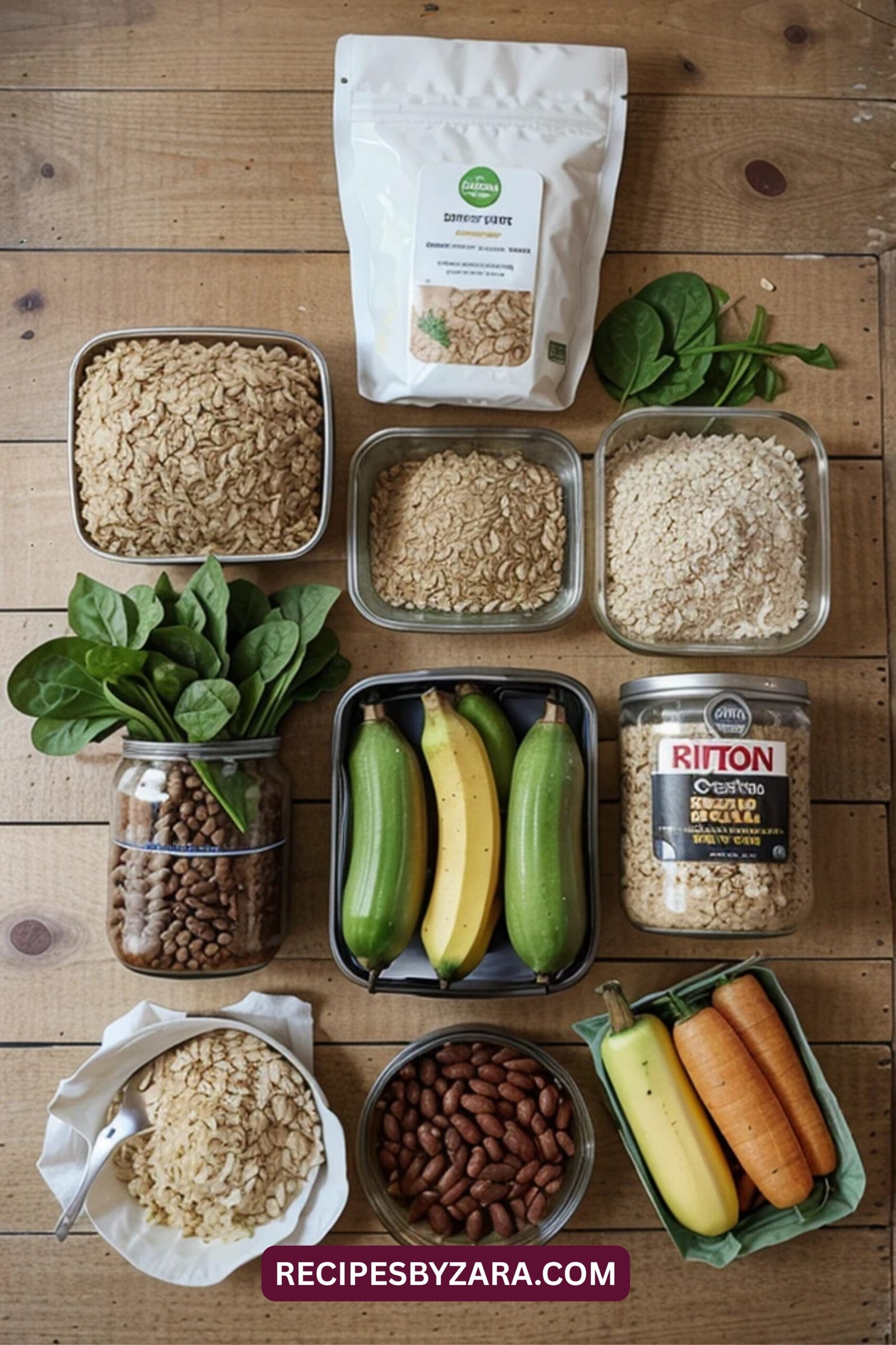
Plant based meal prep can be very affordable. Stick to affordable plant based food like oats, rice, canned beans, and frozen veggies. These items are cheap, store well, and can be used in many dishes.
Shop seasonally. Buy fruits and vegetables that are in season for lower prices and better taste. Plan your meals around seasonal produce recipes and reduce reliance on expensive ingredients.
Cook in large batches and use leftovers creatively. Make a big pot of soup or stew and freeze some portions for next week. This reduces both time and waste.
Minimize packaged foods. Instead of buying pre-made bars or sauces, make them at home. This supports zero waste cooking and saves money in the long run.
10. Long-Term Lifestyle Benefits
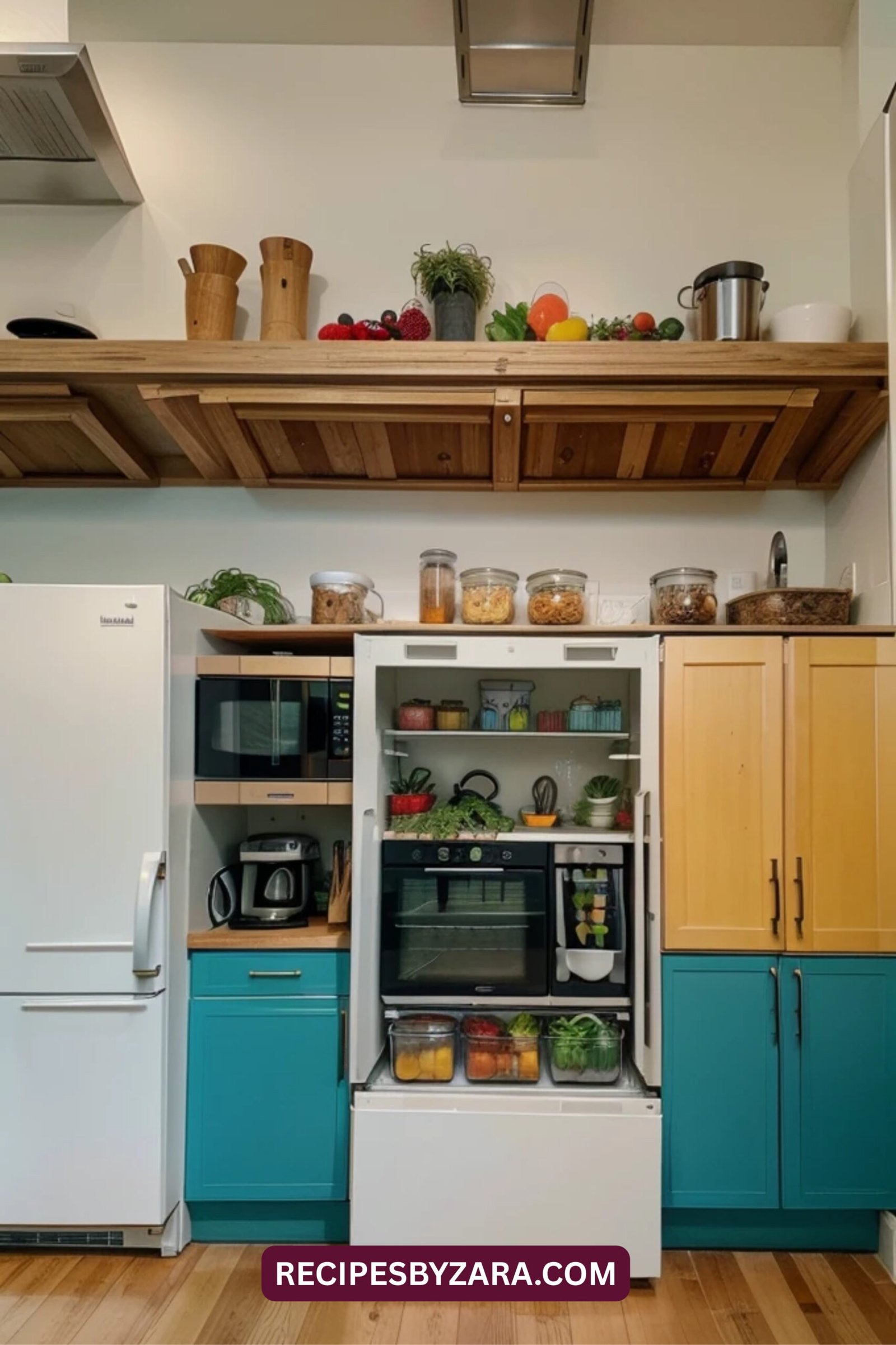
Over time, plant based meal prep becomes a habit that benefits your health and well-being. You gain more control over what you eat, which leads to better nutrition and more energy.
Plant-based eating has been linked to reduced inflammation, better heart health, and improved digestion. By prepping your meals in advance, you’re more likely to stay on track with your goals.
Meal prepping also reduces stress. With meals ready to go, you avoid last-minute cooking decisions and enjoy more time during your evenings or weekends.
Most importantly, it creates sustainability in your diet. You eat with intention, reduce waste, and stick to your values all while enjoying delicious, plant-powered meals every day.
FAQs
1. What foods are essential for plant based meal prep?
Whole grains like brown rice and quinoa, legumes such as lentils and chickpeas, fresh and frozen vegetables, fruits, nuts, seeds, and plant-based proteins like tofu are all essential staples for successful plant-based prepping.
2. How much protein do I need on a plant-based diet?
Most adults need about 50 to 70 grams of protein daily, depending on activity level. You can meet these needs with a combination of beans, lentils, quinoa, tofu, tempeh, nuts, seeds, and plant-based protein powders.
3. Can I freeze all my plant-based meals?
Not all, but many plant-based meals freeze well. Soups, stews, cooked grains, and beans are freezer-friendly. Avoid freezing raw salads or meals with high water content like cucumbers or fresh tomatoes.
4. Is plant based meal prep good for weight loss?
Yes. It helps with portion control, reduces snacking on unhealthy foods, and makes it easier to stick to a low calorie plant prep routine. Focus on whole foods, fiber, and lean plant proteins.
5. How do I keep my meals from getting boring?
Rotate ingredients, try new spices, and include global cuisines. Add new sauces or dressings and use different textures (crispy tofu, creamy hummus) to keep meals interesting throughout the week.
6. What are quick plant-based meal prep recipes?
Overnight oats, lentil soup, chickpea salad, rice and veggie bowls, and stir fry are all quick recipes. They take less than 30 minutes to make and are great for bulk prep.
7. Can I meal prep smoothies or overnight oats?
Yes. Portion your smoothie ingredients into freezer bags or containers, then blend when ready. Overnight oats can be stored in jars for up to 5 days and flavored with fruit or nuts.
8. What’s the best way to reheat prepped meals?
Use a microwave, stovetop, or oven depending on the dish. Reheat until steaming hot and stir halfway through for even heating. Add a splash of water if grains or beans become too dry.
9. Do I need supplements on a plant-based diet?
Some nutrients like B12 and vitamin D may be lacking in plant-based diets. Consult with a healthcare provider and consider supplements to ensure you’re getting everything you need.
10. How do I get my family on board with plant-based prep?
Start by introducing plant-based versions of familiar dishes. Involve them in meal planning and prepping. Focus on flavor and fun presentation to help everyone enjoy the meals.
